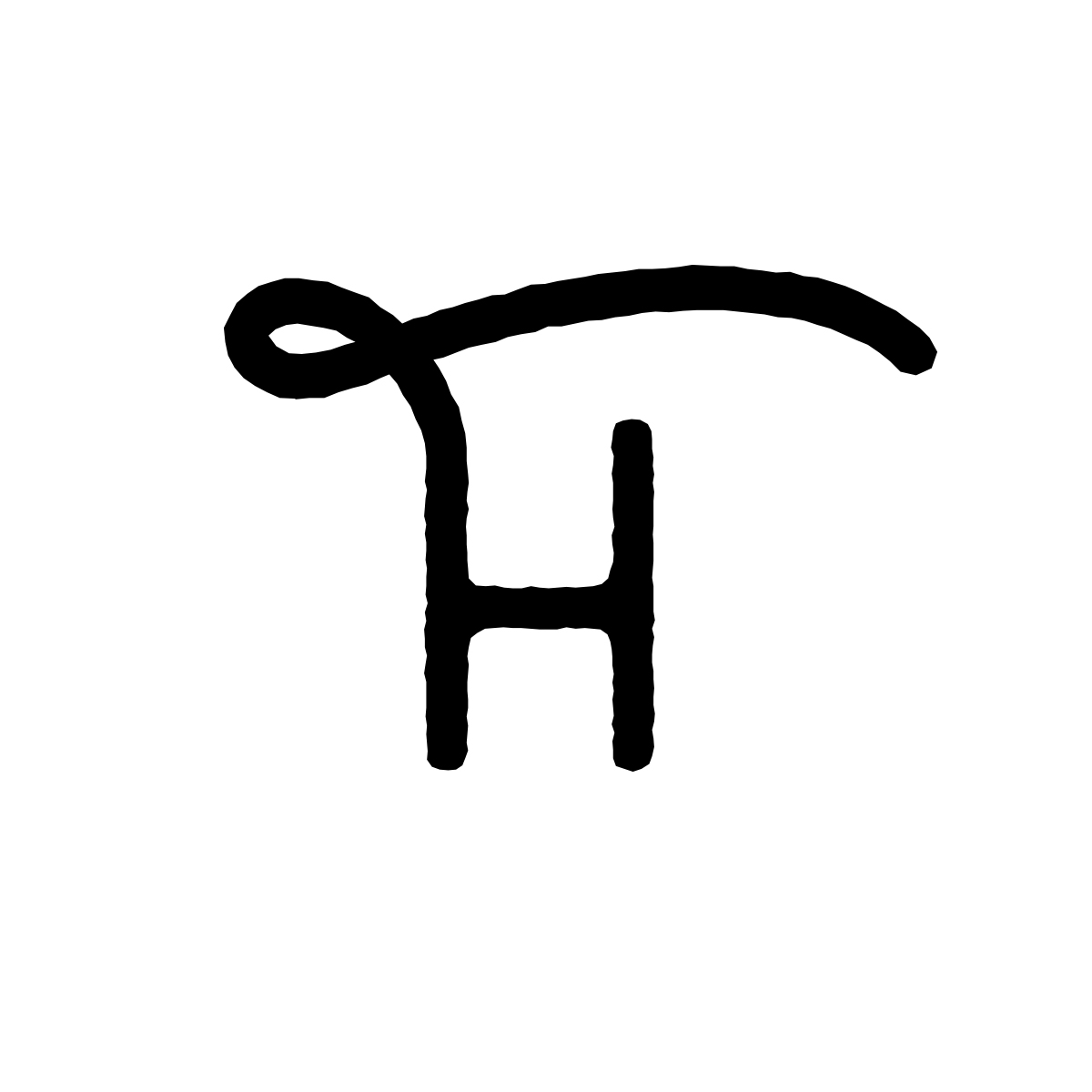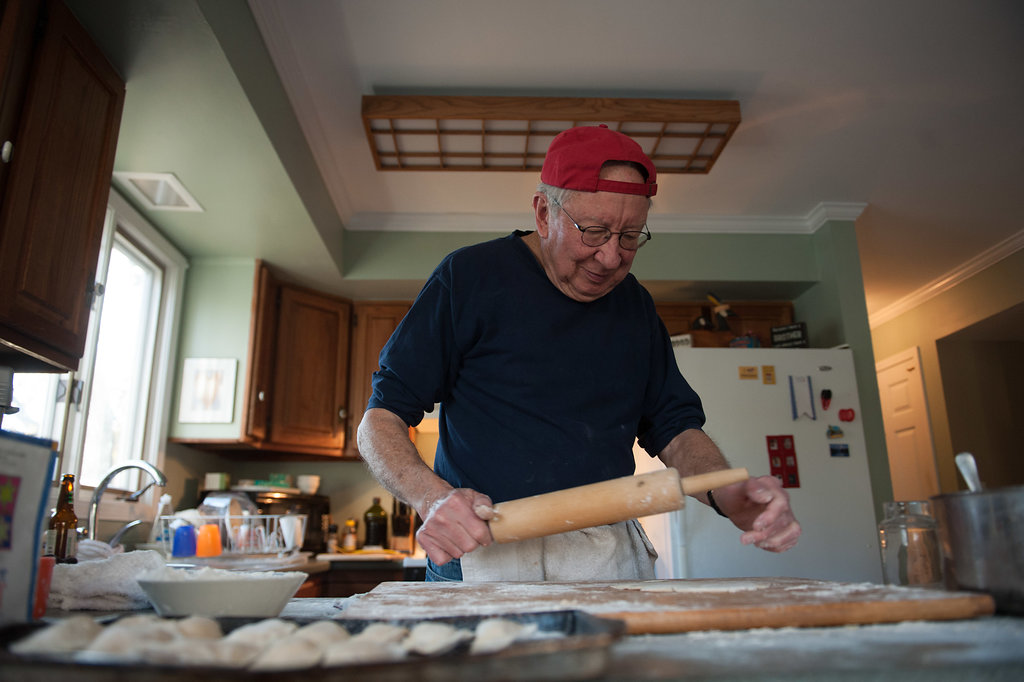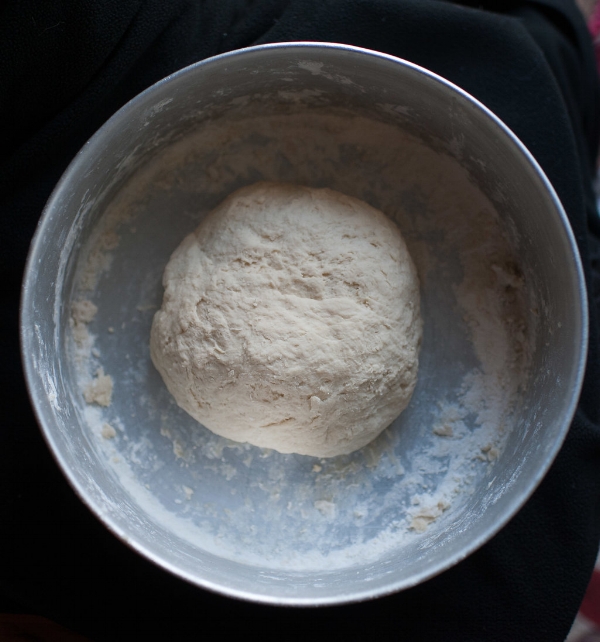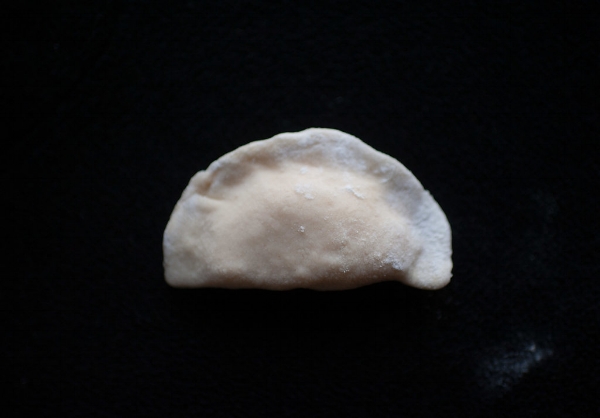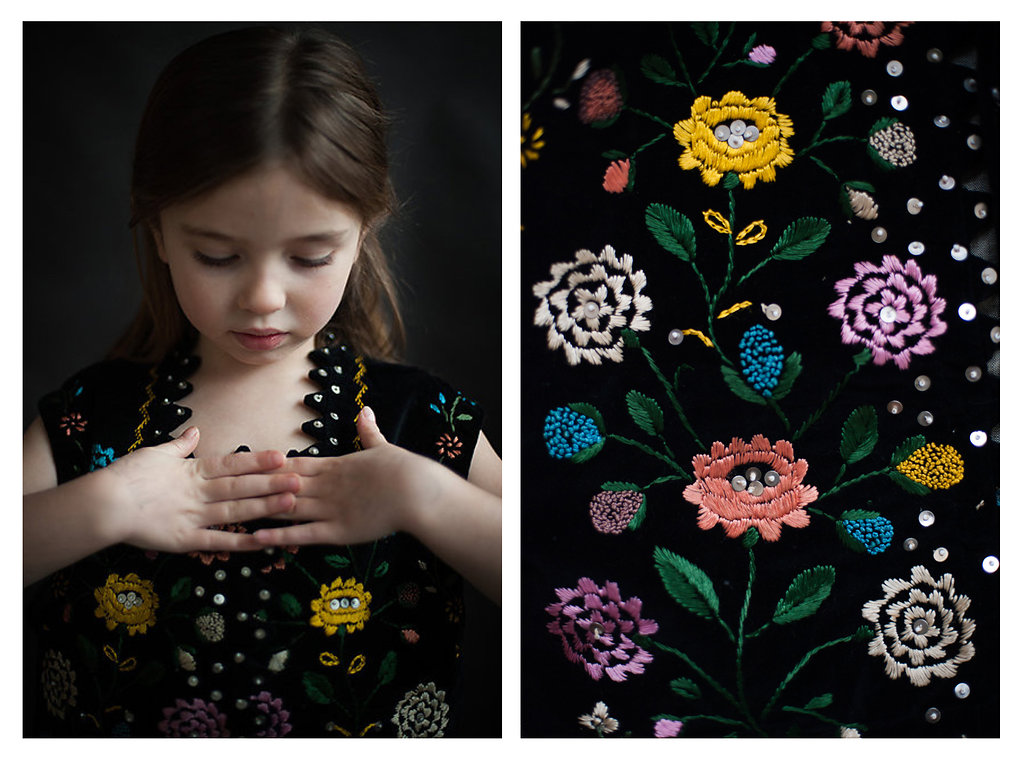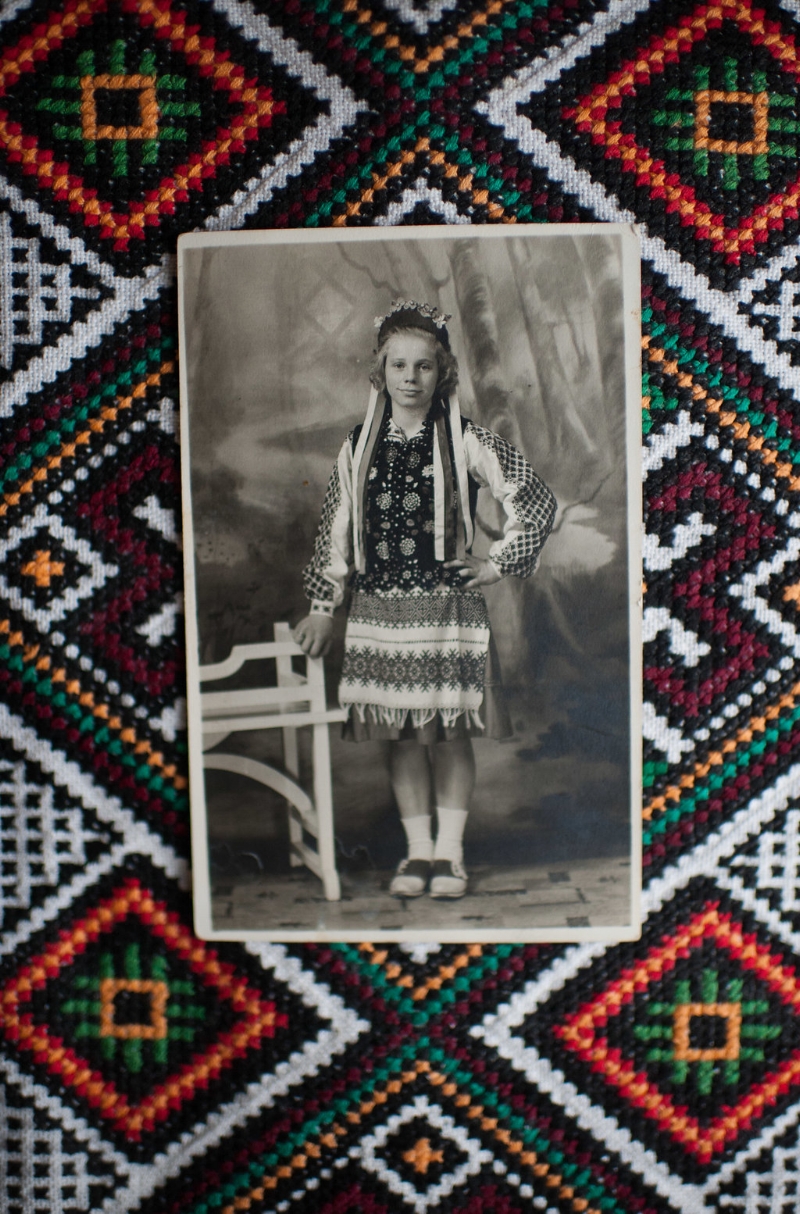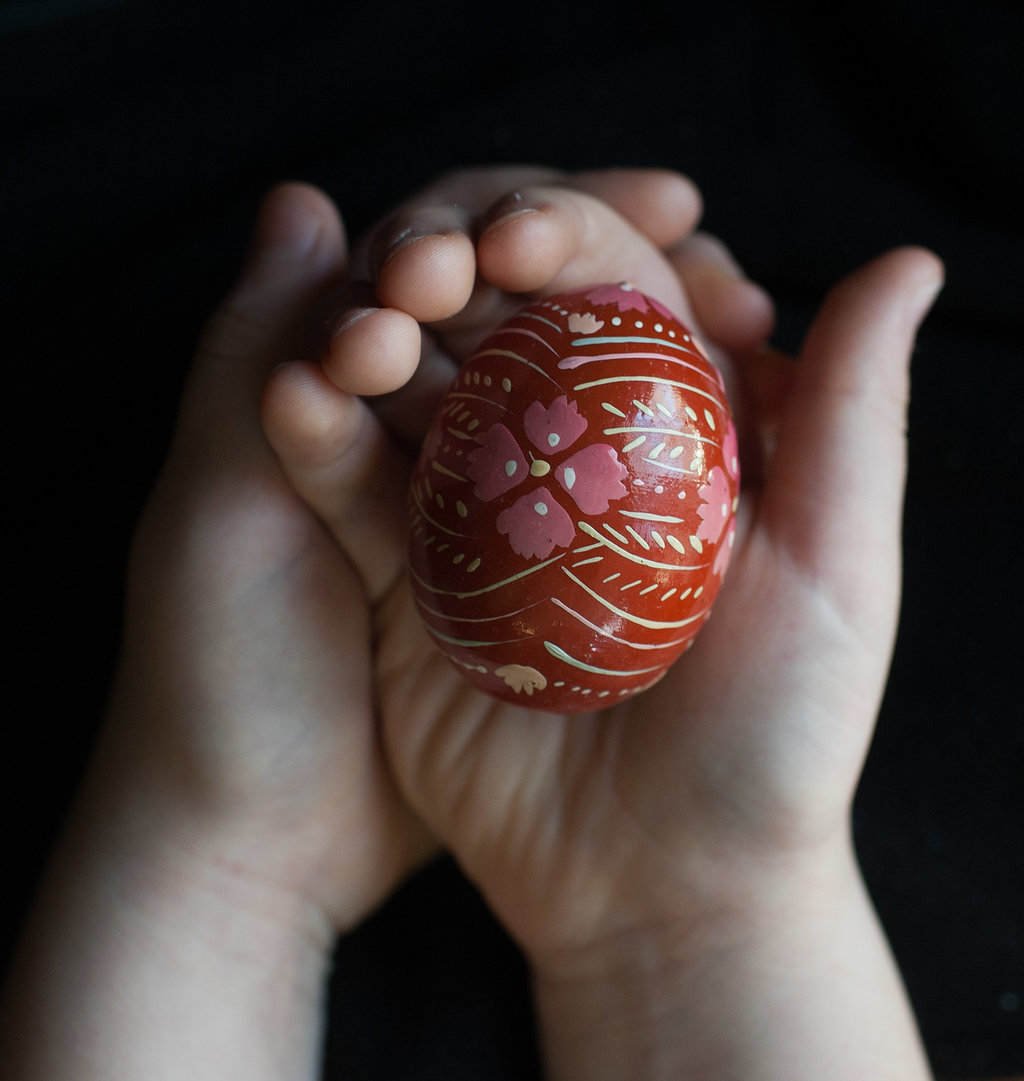That's The Connection
The Subject
In the early 1900’s, Damien Malyk travelled from Voloscha, a village in the Ukraine, to Chester, Pennsylvania in the United States. He worked building ships in the city’s massive Sun Ship shipyard. In 1918, Damien’s daughter, Hafia, was born in Chester as a United States citizen. Soon afterwards, the family returned to the Ukraine, where Damien used the money he’d saved building ships to buy farmland and raise horses and dairy cows. Hafia and her sisters were raised in rural Ukraine and remained there until the mid-1930’s, when Damien sensed that the political climate in Europe was changing for the worse. He wanted Hafia—then eighteen years old—to return to the USA. But he did not want his daughter to travel alone and unmarried. Damien knew that the Melko family, who lived in the nearby village of Mynich, had a twenty-eight-year-old son named Mykola. The other Melko son, Ben, had already immigrated to the USA, and worked in the same city as Damien had—Chester, Pennsylvania. Mykola wanted to follow his brother to the United States. In 1935, Hafia and Mykola married. Not long afterwards, Hafia travelled alone to the United States, first living with her husband’s brother, Ben, in Chester, and then striking out on her own, finding a job as a housekeeper in Philadelphia. In 1936, Mykola joined her in the USA, and began using the American version of his name: Nicholas. In 1938, on the same day that the racehorse Sea Biscuit won the “Match of the Century” against the celebrated stallion, War Admiral, Nicholas and Hafia welcomed their first child into the world. Although Hafia wanted him named Damien, after her own father, the nurses in Jefferson Hospital misunderstood and gave the baby boy the name “Daniel.” Their family settled in a Ukrainian neighborhood in Philadelphia before moving to Feltonville, where they lived on a row house on C Street. During the Second World War, Hafia worked as a seamstress in a plant making American flags. Later, she worked at a cigar factory. Nicholas was a “box man” at an ice cream manufacturer, keeping inventory in the factory’s cold storage unit, where it was so cold he could only work for fifteen-minute intervals inside the cooler. In 1948, their daughter Frances was born. In the 1970’s, Daniel Melko moved to Chicago, where he met his wife and had a family of his own. This is the story of Dan’s family and his heirlooms, in his own words.
**This is a special PH post because it's about our founder and photographer's family! Dan is Elaine's dad. Elaine and I decided that we will also include our family stories here, so we are a part of the project, too. Enjoy!
The Objects
Recipe Card
“That’s my mom’s… as many Ukrainians did, certain items were staples in our lives. And pierogis was one of them. On a holiday she [Hafia] was making pierogis. Or else [on] just as a normal Friday [meal]. We had “meatless Fridays” because of the Catholic faith. You don’t eat meat on Friday. That was prevalent then. And she would make pierogis, and the fillings in the pierogis were always…potato and cheese, which I always enjoyed. And then she made another one that was filled with sauerkraut and mushrooms sometimes. And then she made them with fruit filling. Cherries and plums…So I try to keep [the tradition]…”
Wooden Rolling Pin & Wooden Board
“There is a wooden rolling pin that I got…That was just an implement that was in my mom’s kitchen. And there was a board that she used in the kitchen. She would roll out the bread or pierogi dough.”
Making Pierogis
“It was really a lot of fun. Thanksgiving, I had everybody over here. I had made…the potato-and-cheese filling ahead of time. And then my son-in-law, I had always talked to him about the sauerkraut [pierogi]. And he [laughs], God love him, he was really excited…Mark, my son-in-law…he said, ‘Hey, Dan! We’re doing it! We’re making Sauerkraut!’ So we made the filling for the sauerkraut. And I just mentioned, I said, ‘Oh, the other thing was…my mom would make the fruit fillings.’ So we decided that we would do that during the whole process. So I went out and just got some cherry pie filling…And we made some cherry pierogis. It was a process. We rolled out the dough and made the dough. I got a glass there… The dough’s flattened and you make circles, little circles. And then you just take your rolling pin and roll it out, making it a little bigger. And [you] take a spoon and put the filling in inside the center of that that dough. You pinch it. You put your fingers with flour and you pinch the pierogi closed. And the reason why you use the flour is because you want…when they start to boil, you don’t want the dough to come apart. And that’s the key to make a pierogi…It’s a lot of work. ”
Carving Knife & Kitchen Towels
“I still have the carving knife that my mom used in the kitchen in Philadelphia. It was a bread knife, but it was worn to the bone because of so many sharpenings. But I kept that. And I keep it in my kitchen. And every time I pull out a knife of my own, that knife is always there, and I always get a nice, warm feeling every time I see it. And I have a couple kitchen hand towels from my mom, [from] her kitchen. How I accumulated that, I don’t know. I don’t even use them. I just keep them in the drawer with my other hand towels. And it’s just another warm feeling that I got. And eventually I’ll pass it down to the grandkids…”
Embroidered Vest & Shirts
“That was my mom’s vest, I believe. That was from the days when my mom was in the plays. That was a Ukrainian costume that my mom had. There used to be an apron that went under it and they had those…Ukrainian shirts with sort of the puffy sleeves and nicely embroidered. But she did pass that onto Elaine [Dan’s daughter] and it’s just nice that Charlotte [Dan’s granddaughter] was able to take advantage of it…”
“…Growing up, they [Dan’s parents]…had their friends, their Ukrainian friends. And when they were younger they both participated in the art’s group…down by the church. They would put on Ukrainian plays there, at this little hall that was the bloodline of the Ukrainian community. I remember there was a bar there, and I remember they had pool tables. What we would love to do as kids was take the [pool] balls and throw them into the holes! But it was just fun watching my mom and dad perform in these plays, and many times they would dress up in the Ukrainian outfits.
…It would always be a play occurring in a Ukrainian village. And they would wear their traditional costumes. And the plays were in Ukrainian. They spoke Ukrainian. There was…always the director who directed the plays…it took a lot of time—rehearsals and stuff like that. So maybe during the course of the year they would put on maybe two plays. And around the holidays the facility was used for concerts…singing, playing of instruments. But my mom, she did enjoy that. That was [a] community thing with her friends and other people. And I loved the plays because I would run around and go back stage. I loved that facility and the …pool table.
”
Photograph of Mykola Melko (father)
“That was the shot that was on my dad’s visa when he came over. My sister has the original. And the name on there is ‘Mykolai,’ which is the Ukrainian pronunciation for Nicholas. I think he was around twenty-eight years old at that time, when that picture was taken...
And my dad, his education was not the best. And he worked for an ice cram manufacturer. And his job was…he called himself a ‘box man.’ As a product, ice cream came off the production line and before it was shipped out to the stores it went into cold storage to keep it frozen before it was distributed. And his job was to move it around inside this cold storage area. He took inventory: what was coming in, what was coming out. But because of the environment, it being so cold…he could only work in there fifteen minutes. He’d be in there: fifteen minutes in, fifteen minutes out. The few times that I visited him down there he would show me the clothes that he put on like layers: a suit and coat, and hat and gloves and boots. And that was his job…You know, it paid the bills…He was a box man.”
Father's Rocking Chair
“Up in my bedroom I have a chair. It’s like a little rocking chair, very unpretentious. But very meaningful to me, because my dad, when we lived in C Street, in the morning when he would get up to go to work, he would sit on that rocking chair and put his shoes on. That was his place where he started out his day—by sitting on that chair and getting ready to go to work. Or else in the evening he would get up at night to take a smoke. At night he would sit in that chair and smoke for about ten minutes, and go back to bed...
…My mom and dad they were caring people. My dad was sort of a mild- mannered guy. And Mom was more…she drove the car, you know what I mean? We still had our family out there in Chester, Pennsylvania, and she was the one who was always on my dad’s case. ‘Lets go and visit your uncle! Let’s go visit your family up there…’ If it wasn’t for her, my dad would’ve been content just to sit on the porch. You know, we had an enclosed porch on our row house, and he [had] his radio out here. He was a cigarette smoker, then he switched over to a pipe. And he’d sit on the porch and listen to the Phillies’ games. The Philadelphia Phillies. He enjoyed baseball. He never took me to a game, but he would enjoy baseball, that’s for sure.””
Painted Eggs
“The Ukrainian Easter Eggs. My mom had collected a lot of Easter eggs that she had had growing up…They were more decorative. And I just shared them with the kids. I’ve always given a few to friends… And there’s an art form to making those things…they were part of the Ukrainian heritage…there are some wooden ones, and there are some [that are] the actual egg. There’s and art form where they use the wax and paint them up.”
Row House Number 4838
“…Back then in the neighborhood the streets ran from A, B, C…And we were in C Street.
…Originally we rented an apartment, but we lived in a Ukrainian environment, you might say. A lot of Ukrainians were in that area. We were living close to the Ukrainian Cathedral…It was the Immaculate Conception Ukrainian Cathedral. Close-by there was an orphanage…they also provided a Catholic school. For about a year at the Catholic school is where I started my education. And then my mom and dad, they moved out to…the neighborhood where I grew up in Philadelphia. The neighborhood where I grew up was called Feltonville. The first house we lived in was on B Street…and my mom didn’t like that house because it was on the corner. And this was a Philadelphia row house environment where you had twenty houses right in a row, and we had the corner house. And it had…a little store on the lower level…which back then was very common. You know, a corner store, mom-and-pop shops. And so eventually we moved over one block to C Street. And that’s where I basically spent…my life growing up over there.
…Mom was…at the time with the war going on, she did a lot of seamstress [work] using a sewing machine. She worked at a plant where they made American flags. And then she got a job [laughs] in a cigar factory that produced the Philly Cigar. She used to hand-wrap cigars and put them in the box…
”
The Questions
What would you ask the original owners of these objects, if you could speak to them today?
“There again, the ones that I just talked to you about—the knife and the [hand towels]—…my mom would probably be upset. ‘What are you taking about? It’s just a darn knife!’ [she’d say] Or, ‘it’s just a hand towel.’ In a nice way though, she would think, ‘What are you talking about? It was nothing special.’ But to me…I’m not saying at that time they were special, I didn’t look at it that way. But once my mom and dad were gone…all of a sudden things like that were very relevant. So my connection, my things [that I would say] to them, is: you might not think it’s special, but I do.
Your children will just remember those things you didn’t think [were] very relevant, but it becomes a magic item. And my dad would day the same thing about the rocking chair. I got a bookcase here, and I kept a deck of cards that my dad used to play pinochle with. He used to play pinochle with his buddies in our house in the kitchen, they would get together. For some reason I tried learning pinochle. [Laughs.] I could never get the little subtleties of [it]…I would bid on it and he [Dad] would start to shake his head, and I knew he was thinking: ‘You dumb son-of-a-gun. You should have did this instead of that!’ [Laughs] But to me I knew those cards were relevant because I knew how much enjoyment [they] gave my dad. Then I got a pipe of his that he used to smoke. I kept that. The other last thing is, he liked to chew Chiclets [a kind of gum]. So I got a box of Chiclets on my bookcase next to his pipe and the pinochle cards. ”
What lessons or ideas do these objects communicate that you hope your children will carry through their lives?
“Oh, to me, it’s connection. When I see these things, they just give me…you know, I’m connected to my past with a smile.” [Stops speaking. Weeps]
Excuse me, you just get overwhelmed sometimes. I didn’t mean to get emotional, but when I see those…I’m just hoping that my kids and my grandkids will do the same thing for me. They can say: I remember Pop-Pop, he did this, he did that. It’s something so basic, but the damn thing is so powerful. You get older and something like that…you just get emotional about it. I’m glad I got a chance to experience that—that’s the connection. And I know my grandkids will—I hope they will—when I’m gone, they’ll say: ‘Hey remember, Pop-Pop did this?’ or ‘Pop-Pop did that?’
...That’s a connection that I’m hoping, I’m trying to do with my grandkids now. You got to work at it, there’s no doubt about it. But I hope that… when they’re older I’m just hoping that they’ll just enjoy and laugh about things we’ve done today…And I’m grateful for that.”
